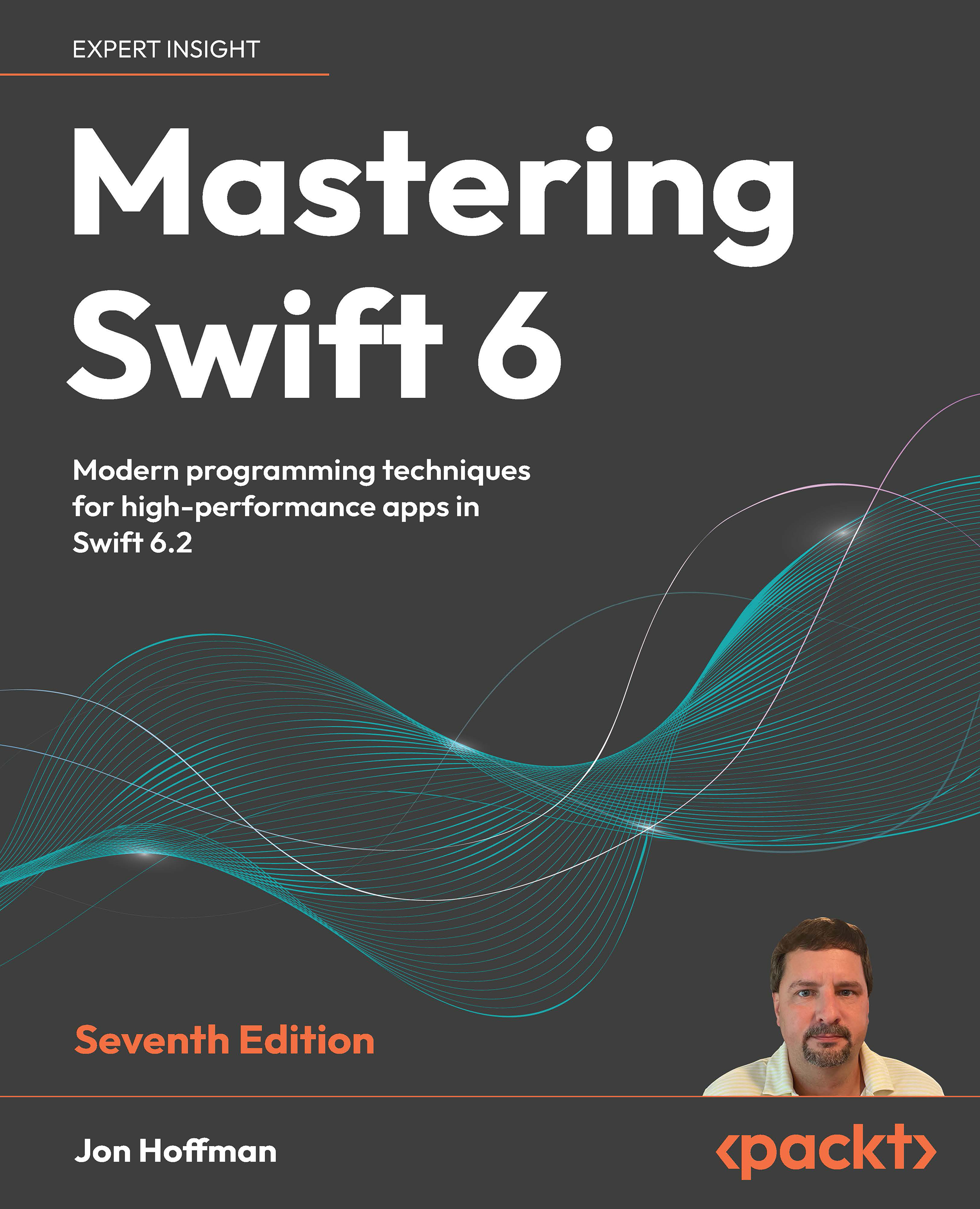Protocol-Oriented Programming
Protocol-Oriented Programming (POP) is a software design paradigm that focuses on using protocols to define methods, properties, and other requirements for types. Unlike Object-Oriented Programming (OOP), which relies on class inheritance, as we saw in Chapter 19, POP encourages the use of protocols to create flexible and reusable components.
One of the key advantages of POP is its ability to reduce the tight coupling that is often found in class hierarchies. By defining protocols, developers can specify a set of requirements that types must conform to, without dictating how these requirements should be implemented.
Swift’s standard library is built using a protocol-oriented design, showcasing the effectiveness of this design philosophy. Many core types within Swift, such as collections and numeric types, conform to protocols that define their essential behaviors. This design allows for a high degree of flexibility and interoperability...

































































